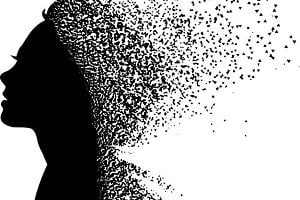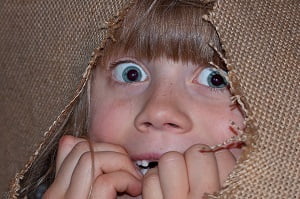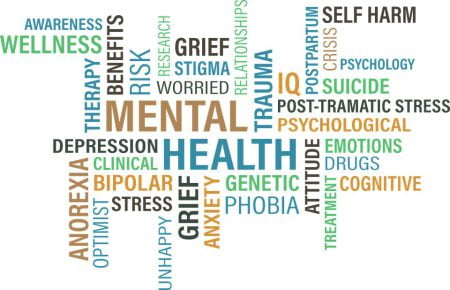Nyctophobia: Fear of the Darkness
- Updated on: Jun 10, 2024
- 5 min Read
- Published on Nov 17, 2020

What Do You Understand By Nictophobia?
Nyctophobia is a fear of night or darkness that can develop symptoms of anxiety and depression. When fear has an impact on your everyday life, it more often becomes a phobia. This phobia usually develops during childhood and continues further till a person is alive. It is usually said that people develop a fear of darkness because they cannot see anything that makes them feel unsafe, and they start feeling anxious. To some extent, the fear may be normal, but when it starts affecting your lifestyle and changes your behavior, you need to visit a doctor.
What Could Be the Symptoms of Nyctophobia?
People with nyctophobia experience excessive fear, leading to significant anxiety, tension, and panic behavior when they’re in the dark. Nyctophobia symptoms can affect learning behavior and daily life performances, like college performance and office work. If stayed for a long time, these symptoms can lead to the development of other health issues.
Different types of phobias share similar symptoms. These signs and symptoms associated with nyctophobia may be either physical or emotional and usually triggered due to the feeling of being in darkness or sometimes imagining yourself in the situation of a dark place from where you can’t get out. Physical symptoms associated with nyctophobia may include:
- Difficulty in breathing
- Fluctuating heart rate
- Shaking, trembling sensations
- Dizziness or lightheadedness
- Chest tightness or pain
- Upset stomach or stomach ache in some cases
- Hot or cold flashes
- Profuse sweating
Emotional symptoms associated with nyctophobia may include:
- Feelings of anxiety or panic attack.
- Detachment from self and feeling “unreal.”
- Feeling to escape the situation.
- Feeling of craziness and dizziness sometimes.
- A feeling of helplessness over the fear.
- Feeling like you may get unconscious or die.
Read About Different Types of Phobias
What Are the Risk Factors of Nyctophobia?
Fear of darkness and night usually starts in childhood between the ages of 3 and 6 years. It can be a normal part of the development, and it’s very common at this age, having a fear of monsters, witches, listening to some weird noises, and sleeping alone. Usually, parents of those kids having nyctophobia keep the nightlight on while they sleep until they overcome their fear. Some other risk factors associated with nyctophobia may involve:
- Some children get a feeling to be fearful by seeing a parent’s anxiety over specific issues.
- Some may experience generalized anxiety if they’re too dependent on a parent or caregiver or if they feel helpless.
- Stressful and traumatic events such as a motor vehicle accident or injury may also make a person more likely to develop a phobia.
- Some adults and children are more prone to fears due to their inherited features from their parents.
How Nyctophobia Is Associated With Sleep Disorders?
Fear of darkness (nyctophobia) is strongly linked with some sleep disorders like insomnia. A study on college students suffering from sleep disorder has revealed that approximately half of those students fear the darkness. Researchers performed a survey of their sleep during noise as well in the dark. Persons who were poor sleepers were more easily scared by noise in the darkness. Meanwhile, the persons who were good sleepers became habitual to the noises with time. The patients with insomnia grew more anxious, panicked, restless, and depressed.
When Should You Consult a Doctor?
Make a plan to consult a doctor if you or your child:
- Feel particularly anxious, panic, or distressed in the dark.
- Avoid certain situations due to your fear.
- Are unable to sleep.
- Experience the fear that is extreme, unrealistic, and affecting your daily lifestyle as well as your health.
- Have another reason to believe that you have nyctophobia.
How Nyctophobia Can Be Diagnosed?
Diagnosis involves an appointment with a doctor and going through a medical interview, like answering some questions about your symptoms. Your doctor will ask about your psychiatric, social history. As any phobia may lead to mental disorders like schizophrenia, depression, multiple personality disorder.
Read What You Should Know About Aerophobia?
What Could Be the Treatment of Nyctophobia?
Not every phobia requires treatment because some of the phobias you usually encounter in your daily life like fear of snakes. Nyctophobia is a matter of concern as it mostly affects a person’s sleep. Lack of sleep can make it somehow difficult to get enough sleep (insomnia) that can affect the overall health, and lead to the emergence of sleep insomnia resulting in other neurodegenerative disorders. A simple treatment for a person may involve sleeping in a bedroom with proper lights. But it is not a permanent treatment and can only help to avoid phobia.Other treatment options for fear of darkness include:
Exposure Therapy
Exposure therapy is also called desensitization therapy, and it is a type of talk therapy. It involves giving repeated fear exposure to a phobic person until it reduces anxiety, distress, and panic. There are several ways to be exposed to fears, including visualizing the fear and experiencing the fear in real life. Many treatment plans involve these two approaches. Some exposure-based treatment procedures have worked for people in as little as one long session.
Cognitive Therapy
Cognitive therapy helps people identifying their feelings of anxiety and replaces them with more positive or realistic thoughts. Psychiatrists help the person with nyctophobia by presenting some information about the darkness that it does not affect anyone, and it is not a thing to be scared. This led to the development of some positiveness about the darkness in the phobic patient.
Relaxation
Relaxation treatment involves things like deep breathing and exercise. It can help the people in managing to manage the stress and physical symptoms related to their phobias. People can perform yoga and meditation to relax their body.
Medication
Sometimes medication is not always an appropriate treatment for people with specific phobias. Unlike medication treatment for other anxiety issues, there’s little research regarding treating specific phobias with medication. However, in some severe cases, doctors may recommend some medication to increase serotonin levels like fluoxetine (Prozac), paroxetine (Paxil), and sometimes beta-blocker agents like propranolol.
Contacting your doctor or a psychologist or health-care professional is an excellent first step toward getting treatment. Let your doctor know about it when fear interferes or causes disturbance in your everyday life and leads to the development of insomnia, resulting in anxiety and other mental disorders if persists for more than six months. Treatment through cognitive therapy and medications can help you relieve your fear of darkness and get a better night’s sleep.
FAQs
Do you Have Nyctophobia?
Nyctophobia is an excessive, unrealistic, or irrelevant fear of darkness that could lead to symptoms like anxiety, distress, panic attack, and depression. When you find any of the above symptoms along with the fear, that means you have Nyctophobia. Some fear may be normal, and if it starts impacting sleep and leading to some stressful conditions, it’s high time to visit your doctor.
How Do I Overcome Nyctophobia?
A person can overcome Nyctophobia by doing the following things:
- A person can get some exposure to the dark in small, incremental, non-threatening doses in a desensitization process.
- One-on-one talk therapy, family therapy, or discussing fear with friends may also be a good treatment option.
- Some relaxation techniques, such as deep breathing exercises can be found helpful in the treatment. Performing some yoga and meditation is also an excellent choice to overcome the distressed and anxiety issues.
- Antidepressant medication and sometimes sedatives may also prove useful for the treatment of Nyctophobia.
How Do I Know if I Have Nyctophobia?
The symptoms of Nyctophobia may include the following:
- Shaking and trembling.
- Heart rate fluctuations, dizziness.
- Sweating and upset stomach.
- Trouble breathing steadily.
- Anxiety and panic attack.
- Losing control over the body.
- Chest pain.
Is Nyctophobia a Disease?
Nyctophobia is better termed as a disorder than a disease. Nyctophobia is a feeling of discomfort. It is a behavioral disorder. In behavioral health, we generally look for a complex of variables that, when present, allow a diagnosis. You won’t identify it in a microscope, and you won’t find it by doing some lab tests. So, it is not a disease.













3 Comments
It’s a shamee yoou don’t have a donare button! I’d certainly donate too tnis excelleht blog!
I suppose for now i’ll ssettle forr bookmarking and addiong your
RSS feed too my Googlke account. I look forward too neew updatres aand wilol talk about this blog with my
Facebook group. Talk soon!
Hmm itt looos like ylur bog ate mmy fiirst comment (it wass extremely long) soo I guyess I’ll
just sum it upp what I wrote annd say, I’m thproughly enjoying
youhr blog. I too aam ann aspireing blog writer
but I’m still new tto everything. Do youu have any tips aand hints for newbie blog writers?
I’d defjnitely appreciate it.
Pretty! Thiis has been an extremely wonderful article.
Maany thanks for supplying his info.